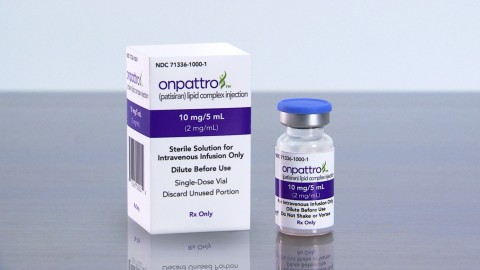
A US health technology assessment (HTA) group has concluded that Alnylam’s just-approved Onpattro for hereditary transthyretin (hATTR) amyloidosis is priced too high.
In draft guidance, the Institute for Clinical and Economic Review (ICER) says that RNA interference drug Onpattro (patisiran) – and Akcea/Ionis’ antisense candidate Tegsedi (inotersen) which is due for an FDA verdict in October but is already approved in Europe – are a major step forward in treatment for the rare disease.
Nevertheless, Alnylam’s price for Onpattro of $450,000 per patient per year “even taking into account expected discounts, far exceeds commonly cited cost-effectiveness thresholds,” according to ICER’s chief scientific officer Dan Ollendorf.
Alnylam has said it expects the average cost of Onpattro to reduce to $345,000 after discounts, and has offered a money-back guarantee for insurers in the form of a rebate if it doesn’t work as expected.
Even at that level, ICER says the therapy far exceeds commonly accepted thresholds of $50,000-$150,000 per quality-adjusted life year (QALY) at $850,000 per QALY gained, and its price would have to be reduced 90%-95% to come into line with the benefit to patients.
ICER is holding a public meeting on 13 September to discuss its new evidence report, and Ollendorf said he hopes that “inotersen’s manufacturer takes the report and meeting discussions under consideration when setting its price.” From its initial observation the organisation says a price of between $15,300 and $25,400 per year would be reasonable for Tegsedi.
Onpattro and Tegsedi have both been approved based on data showing they can slow down the progression of nerve damage (polyneuropathy) caused by hATTR amyloidosis, and “clinical interest in [their] use is high,” says the ICER report.
“We heard from patients, patient advocacy groups, and caregivers that hATTR is a severe disabling illness that profoundly impacts all aspects of quality of life [and] results in loss of independence and a sense of ‘normalcy’,” it notes.
However, ICER goes on to say that there “may be uncertainties related to the translation of neurologic outcomes to longer-term clinical benefit, the durability of such benefit, potential harms of treatment, and the costs associated with the use of these medications.”
Analysts have predicted $1bn-plus in sales for Alnylam’s drug, which is also on the verge of approval in Europe after getting a positive opinion from the EMA’s Committee for Medicinal Products for Human Use (CHMP) last month.




